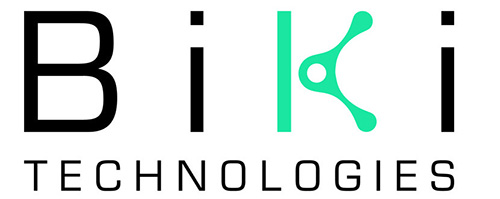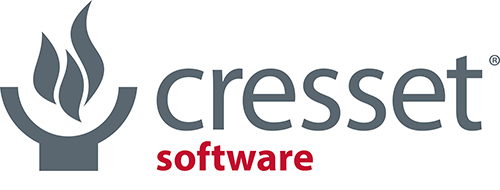2018 Workshop on Free Energy Methods, Kinetics and Markov State Models in Drug Design
Dates and Locations
Monday, May 14th to Friday, May 18th, 2018
The Venue for Monday Night, May 14th
A reception will be held on Monday night at Silicon Therapeutics, 451 D Street, Boston MA, 02210
![]()
The Venue for Tuesday, May 15th through Friday, May 18th
The remainder of the meeting will be hosted at The Novartis Institutes for Biomedical Research, Auditorium, 250 Massachusetts Ave, Cambridge, MA, 02139

On street metered parking is usually limited to two hours. There are public lots around the area. You can check public parking location and rates at http://en.parkopedia.com/parking/cambridge.
If you're coming via public transportation, take the subway red line to Kendall Square.
Introduction
This first three days of the this workshop focus on free energy techniques—the latest innovations and use cases, force field parameterization as it touches these techniques, and sampling practices, among other things. The last two days focus on the study of the kinetics of biomolecular processes at the atomistic and systems scales, via in-silico approaches such as Markov State Models and other suitable techniques.
We as organizers believe that these techniques are even closer than before to making an impact in appropriate drug discovery applications, by allowing physics-based prediction of physical properties such as binding affinity, selectivity, solubility, and membrane permeability. However, a number of challenges still remain. This workshop provides a unique opportunity to assess where we are today and what challenges must be tackled next to bring the potential of free energy techniques to bear on real-world applications. We also seek to identify particular problems in drug discovery where these methods can have an impact.
Our goal in this workshop is to bring together experts from pharma and supporting industries, as well as academia, in an intense and focused workshop to identify challenges and help chart the path forward. We are particularly interested in hearing about use cases, pitfalls and their solutions, and so on. We also firmly believe we can learn a great deal from failure, so we hope participants will go beyond just highlighting success stories to provide more detailed insight into successes and failures.
Registration
2/20/18 Update: Registration for the Free Energy portion of the meeting is now closed, except for speakers and meeting sponsors, due to capacity limits. Please contact Mike Schnieders (michael-schnieders@uiowa.edu) or another meeting organizer if you missed the registration window and would like consideration. Registration for the Kinetics and MSM portion of the meeting remains open.
Please register to attend either the entire meeting (Monday - Friday for $100), the Free Energy centric days (Monday - Wednesday for $65), or the MSM centric days (Thursday and Friday for $65) by following this link.
Once you register, if you plan to present a poster and/or would like to be considered for an oral presentation, please submit an abstract by following this link.
Sponsors and Social Media
We would like to thank the following sponsors:

|

|

|

|

|

|

|
Twitter hashtags: #drugalchemy #drugmsm; add #discuss if you have a discussion topic suggestion
Slack: https://alchemistry.slack.com
Workshop Format
There will be a number of talks spaced over four days, with ample time for discussion. We hope to draw talks on several main themes that include:
- Applications of Free Energy Methods in Drug Discovery
- Multiple Examples of Lead Optimization for Different Biomolecular Targets
- New Commercial Simulation Algorithms
- Free Energy Simulations: What Didn't Work and Why
- Sampling and Convergence
- Force Field Functional Form (i.e. to polarize or not to polarize) and Parameterization Quality
- (Bio)chemical Effects: Protonation States, Tautomers, Salt Effects, Biological Unit, etc.
- Simulation Set-up and Parameter Sensitivity
- Extending the domain of applicability of free energy calculations
- Handling metals (would double the number of systems we can apply free energy calculations to)
- Dealing with chemical effects (constant-pH, tautomers, counterions)
- Force field parameterization for more exotic chemistries
- Multiple binding sites / weak binders
- ADME-Tox and Physical Property Prediction
- Solubilities, Membrane Permeability and Partition coefficients
- HSA binding, hERG inhibition
- Cytochromes P450 Metabolism
- Kinetics and Markov State Modeling
- Optimization of Binding Kinetics
- Handling Large Conformational Changes
- New MSM Methodology for Drug Design
- Discovery of Allosteric Binding Sites
Talks should be focused on addressing these or related aims. As in our previous workshop, participants should feel free to discuss work that highlights problems or limitations, present ideas on how these limitations may be overcome, and discuss new developments that are underway.
Speakers and Organizers
Speaking slots will be for 30 minutes (25 minute for the presentation, followed by 5 minutes for questions and discussion).
Free Energy Speakers
- Matteo Aldeghi, Max Plank: "Predictions of ligand binding affinity changes upon protein mutation using non-equilibrium free energy calculations."
- Sathesh Bhat, Schrödinger: "Solving Real World Drug Discovery Problems with Free Energy Calculations."
- Charlie Brooks, U. of Michigan
- Chris Chipot, U. of Illinois: "Influence of the membrane composition on its permeability to drugs."
- Guanglei Cui, GSK: "Assessing the Performance of Relative Affinity Predictions: from Null Model to Null Systems"
- Lucie Delmotte, KTH Teoretisk fysik: "GMM with cross-validation allows a robust estimation of free energies: application to the Calmodulin conformational ensemble."
- JC Gumbart, Georgia Tech: "Conformational dynamics of HBV capsid proteins in free and drug-bound states."
- Germano Heinzelmann, U. Federal de Santa Catarina: "APRprotein: Attach-pull-release calculations applied to bromodomains as a pose refinement and ligand ranking tool."
- Dave Huggins, Tri-Institutional Therapeutics Discovery Institute: "Estimating Atomic Contributions To Small-Molecule Hydration And Protein-Ligand Binding Using Free-Energy Perturbation."
- Zhifeng Jing, U. of Texas at Austin: "Many-body effect determines the selectivity of Ca vs Mg in proteins."
- Léa El Khoury, UC Irvine: "Absolute Binding Free Energy Predictions for Heat Shock Protein 90 (HSP90) Complexes."
- David Ryan Koes, U. of Pittsburgh: "Docking Deeply: Molecular Docking with Deep Learning Potentials."
- Marie Laury, Washington U. in St. Louis: "Calculating host-guest binding free energies via the AMOEBA polarizable force field."
- Katharina Meier, Bayer
- Aysegyl Ozen, Pfizer: "Lessons from retrospective FEP on NAMPT."
- Jean-Philip Piquemal, UPMC
- Greg Ross, Memorial Sloan Kettering: "Biomolecular simulations under realistic macroscopic salt conditions."
- Christina Schindler, Merck: "Large scale free energy calculations in drug discovery at Merck KGaA, Darmstadt, Germany"
- Jana Shen, U. of Maryland: "How to incorporate pH in protein-ligand binding free energy calculations."
- Woody Sherman, Silicon Therapeutics: "Overcoming Discovery Bottlenecks on Challenging Targets using Molecular Simulations in an Integrated Biology/Chemistry/Physics Company."
- Michael Shirts, U. of Colorado: "Free energies of crystal polymorphs: what sorts of approximations can we get away with?"
- Thomas Simonson, Ecole Polytechnique: "Accurate PDZ:peptide binding free energies with additive and polarizable free energy simulations."
- Pratush Tiwary, U. of Maryland: "Designing dynamical maps for biomolecules with statistical mechanics & predictive artificial intelligence."
Kinetics and MSM Speakers
- Rommie Amaro, UCSD
- Rob Arbon, Pfizer
- Greg Bowman, Washington U. in St. Louis
- Nicolae-Viorel Buchete, University College Dublin
- Chia-En Chang, UC Riverside
- Cecilia Clementi, Rice
- John Chodera, Memorial Sloan Kettering
- Purushottam Dixit, Columbia
- Gianni de Fabritiis, University Pompeu Fabra
- Sonya Hanson, Memorial Sloan Kettering
- Xuhui Huang, HKUST
- Bettina Keller, FU Berlin
- Antonia Mey, University of Edinburgh
- Frank Noe, Max Planck
- Simon Olsson, FU Berlin
- Fabian Paul, Freie Universität Berlin
- Justin Porter, Washington U. in St. Louis
- Benoît Roux, U. of Chicago
- Muneeb Sultan, Stanford
- Vince Voelz, Temple U.
- Rebecca Wade, Heidelberge
- Maxwell Zimmerman, Washington U. in St. Louis
- Daniel Zuckerman, Oregon Health & Science University
Organizers
- John Chodera, Memorial-Sloan Kettering Cancer Center (john.chodera@choderalab.org)
- Greg Bowman, Washington University in St. Louis (bowman@biochem.wustl.edu)
- Callum Dickson, Novartis (callum.dickson@novartis.com)
- Jose Duca, Novartis (jose.duca@novartis.com)
- Viktor Hornak, Novartis (viktor.hornak@novartis.com)
- John Manchester, Novartis (john.manchester@novartis.com)
- Antonia Mey, University of Edinburgh (antonia.mey@ed.ac.uk)
- David Mobley, University of California at Irvine (dmobley@uci.edu)
- Michael Schnieders, The University of Iowa (michael-schnieders@uiowa.edu)
- Jana Shen, The University of Maryland (Jana.Shen@rx.umaryland.edu)
- Woody Sherman, Silicon Therapeutics (woody@silicontx.com)
We also thank current advisors and previous organizers:
- Brian McClain, Vertex (brian_mcclain@vrtx.com)
- Vijay Pande, Stanford University (pande@stanford.edu)
- Michael Shirts, University of Colorado Boulder (michael.shirts@colorado.edu)
- Camilo Velez-Vega, Entasis Therapeutics (camilo.velez@entasistx.com)